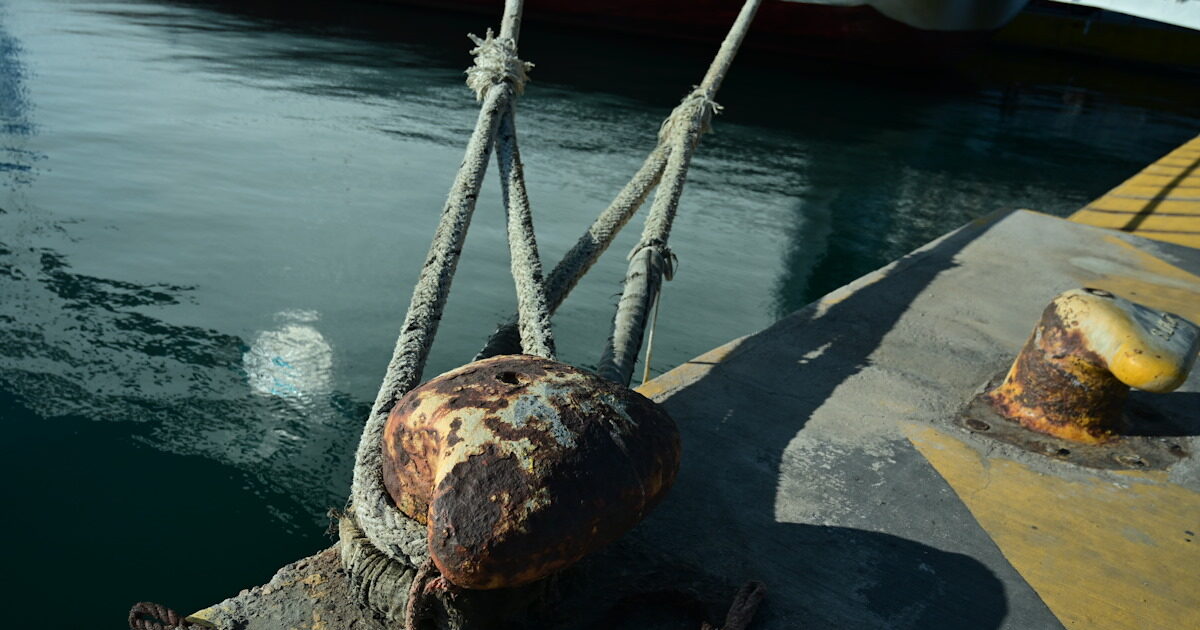New risks and challenges for its industry shipping worldwide they are caused by continuous geopolitical tensions, according to its Safety and Shipping Review report Allianz Commercial.
As noted in a statement on the occasion of Allianz’s research findings, the shipping industry is facing an increasingly unstable and complex operating environment characterized by ship attacks, vessel seizures, sanctions, and consequences of incidents related to critical cables.
In addition, the domino of increasing protectionism and duties threatens to remodel supply chains and overthrow established commercial relationships.
Since 90% of international trade is transferred by sea, these developments are of concern, especially as the industry continues to face the prospect of large compensation due to traditional risks, such as fires, conflicts and surroundings, which remain the main causes of total loss.
However, there are positive news: Shipping has made significant progress in the field of sea security in recent years. In the 1990s, the world fleet lost more than 200 ships a year. This number had been reduced by half 10 years ago and today it has fallen to a historically low level, only 27 losses by the end of 2024 (compared to 35 in 2023).
“The importance of political risk and conflict as a possible cause of maritime losses is increasing as geopolitical tensions are exacerbated. The total losses from traditional reasons may have been reduced over time, but we may be at a point where this positive trend is offset by increasing exposure to wars and political dangers. As a industry, we are in a better position in terms of traditional dangers, but attention is again turning to the geopolitical dangers, “says Captain Rahul Khanna, Global Head of Marine Risk Consulting by Allianz Commercial.
The trade conflict between the US-China and the increase in the “shadow fleet” bring uncertainty and challenges.
China has been the main objective of the US government’s protective measures, with duties reaching 145%, before the two countries agreed to reduce for 90 days. Developments have significantly affected world maritime trade, as about 18% of world trade is now subject to duties by mid -April 2025, compared to just 4% in early March. Indeed, a dramatic decline in maritime transport was recorded shortly after the announcements of the “Liberation Day”.
Although the future commercial policies of the US They remain uncertain, another phenomenon emerges in an increasing challenge for the shipping and insurance industry: the shadow fleet. Since the start of the war in Ukraine, the size of the shadow fleet has increased significantly.
Today, about 17% of the world tanker fleet is estimated to belong to this network, with nearly 600 tankers carrying only Russian oil. Shadow fleet ships have been involved in dozens of cases worldwide, such as fires, collisions and oil leaks.
“Although recent sanctions make the activities of these ships more difficult, the shadow fleet is still a serious threat to shipping and the environment, as many of these ships are probably old, with poor maintenance and inadequate insurance coverage. In the case of oil tanker oil leakage, the cleaning costs could reach up to $ 1.6 billion US, “says Justus Heinrich, Global Product Leader, Marine Hull, Allianz Commercial.
Fires and incorrectly declared loads remain top -ups for large ships.
Large ships are still serious concern for insurance and cargo insurance companies. In 2024, seven total ship losses of all types were reported, a number of the same as previous year. The total number of incidents increased on an annual basis, reaching 250 incidents, being the highest decade. About 30% of these fires occurred on container ships, trucks or roll-on/roll-offs (69 incidents). Over 100 total ship losses over the last decade are due to fires.
Efforts are being made to reduce these risks, with regulatory changes and technological developments aimed at tackling the incorrect load statement, which is a key factor in challenge of such fires. This is very crucial as the electric drive of the global economy creates new challenges due to the increased transfer of lithium -ion batteries and battery energy storage systems.
In the eastern Mediterranean and the Black Sea, including Greece, 4 total ship losses were recorded in 2024, making it one of the key areas with naval accidents worldwide, along with the British islands. In addition, there were 694 naval incidents, the second highest number worldwide for the year. This region has consistently recorded high activity and danger over the last decade, reflecting its strategic importance to international trade.
“There is no doubt that the shipping industry is becoming more resistant to the dangers associated with large ships, but we cannot say that these risks have been fully under control. However, only 27 total losses in 2024 demonstrate the positive course. To put it in perspective: the world fleet has over 100,000 ships (100 gt+). However, uncertainty and multiple risks remain.
Cyberattacks and interference with GPS are increasing. The truce has given birth to hopes, but the threat of safety in the Red Sea and supply chains are expected to continue. At the same time, the green transition requires significant progress. In the coming years they will be decisive and shape the course of the industry and world trade, ”explains Captain Rahul Khanna, Global Head of Marine Risk Consulting, Allianz Commercial.
